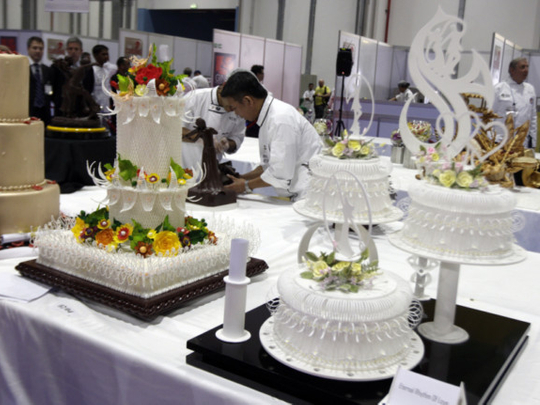
Abu Dhabi: Though the UAE food industry is around 80 per cent dependent on imports, the outlook for the future is bright if policymakers use more sustainable strategies, experts said.
The figure presents a challenge in case of any blockage in imports, which would cause a food shortage. However, Kimberley Chance, Food Security Advisor at the Food Security Centre Abu Dhabi, said the UAE’s biggest challenge is fresh water.
“The Mena [Middle East and North Africa] region is challenged with food supply/demand imbalance...’ he said. “Some research outcomes are providing a degree of optimism that we can meet this challenge and we’re hopeful we’ll see new developments that can begin to reduce the supply/demand imbalance.”
The UAE’s food imports totalled $7.7 billion (Dh28.28 billion) in 2012, and the number is expected to reach $9 billion for 2013. The increase is due to the rising prices of food commodities rather than a rise in volume.
However, the issue goes beyond the UAE as such figures are common in the GCC and some East Asian countries such as Singapore and Japan, where dependence is at 60 per cent.
For the UAE, imports come mainly from Europe, Australia, New Zealand, South Asia, South Africa and the US. Chance said the most heavily imported products are cereal, grains and meat.
Meanwhile, Brian Barriskill, Supply Chain Director at Al Dahra Agricultural Company, who reported food dependence at about 90 per cent, said the figure is likely to drop but not below 70 per cent.
He added that the country’s biggest challenge was finding a balance between agricultural practices that are both affordable and sustainable.
Barriskill suggested investments in new farming technologies, such as water-saving techniques, could eventually reduce the quantity of imports without having to raise the prices of products.
As matters stand, the UAE is considering investing in land in other countries, particularly eastern Africa, and using it to grow crops.
Both Barriskill and Chance were speaking on the sidelines of the fourth annual SIAL Middle East, the region’s fastest-growing trade event for the food, drink and hospitality industries.
With around 700 exhibitors, the exhibition, which kicked off on Sunday, will run until Tuesday at the Abu Dhabi National Exhibition Centre.
It is also gathering 500 global VIP buyers with a minimum of $500,000 worth of purchasing power each. This adds up to $2.5 billion worth of purchases expected at SIAL, excluding trade between exhibitors.
Among the exhibitors was Trading Flavours, a Danish import and distribution company currently working with the UAE hospitality sector to supply various food products.
Managing Partner Charles Pedersen said trade partnership with the UAE takes up 10 per cent of the group and there are plans to extend that number.












